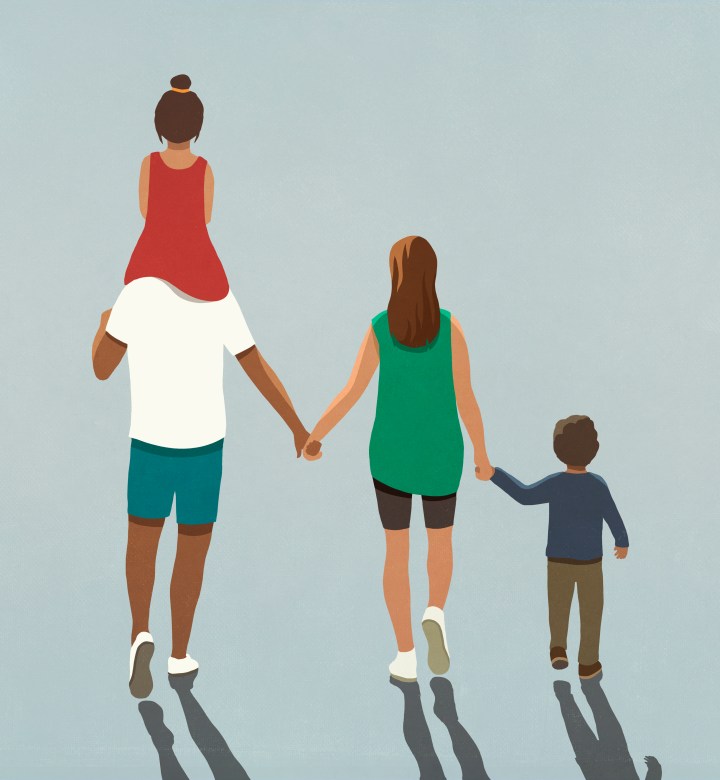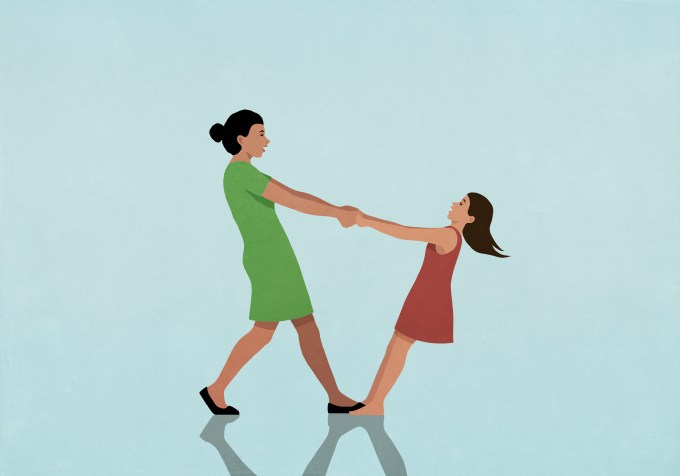Whether it’s from your mom, your neighbor or the checkout lady at the grocery store, sometimes it feels like parenting advice is never-ending. And often, in addition to being unsolicited, their “tips” are flat-out unhelpful (no matter how well-meaning). One source we do listen to for guidance? Mental health experts who’ve seen it all. That’s why we reached out to Janet Bayramyan, LCSW, a certified EMDR trauma therapist with nearly a decade of experience in the field, for five things—from putting too much responsibility on your kids to neglecting your own needs—she wishes parents would stop doing.
5 Things a Trauma Therapist Is Begging Parents to Stop Doing
Be mindful of how much responsibility you’re giving your kids

Meet the Expert
Janet Bayramyan, LCSW, is a certified EMDR trauma therapist at Road to Wellness. She has more than eight years of experience as a trauma therapist and is licensed in California, Florida, South Carolina, Texas, Connecticut and North Carolina. She has worked with individuals with a history of trauma and addictions, couples facing relationship challenges and individuals experiencing significant life transitions. Bayramyan approaches therapy from a supportive and strengths-based perspective, always considering one’s strengths, cultural background and identity.

5 Things a Trauma Therapist Wants Parents to Stop Doing
1. Putting Too Much Responsibility on Their Children
Yes, it’s important to teach responsibility, but Bayramyan recommends being mindful of how much—and what kind of—responsibility and pressure you’re putting on your kids. “It’s important to allow children to be kids,” she says. “When parents place adult responsibilities on children, the child then learns to ignore their needs and feelings and have a much more difficult time developing their own sense of self.” Stick to having them tidy their toys or make their own bed until they’re ready for the bigger leagues.
2. Confiding in Their Children
“It’s also important that parents not confide in their children, or place their emotional needs onto children,” Bayramyan continues. “In essence, doing this signals that the parent didn’t create healthy emotional boundaries with their children, which may cause the child to grow up and feel the need to engage in people-pleasing behaviors.” It may also, she adds, cause the child to lack boundaries and struggle to form healthy relationships in adult life.
3. Dismissing Their Child’s Feelings
About this Bayramyan is clear: “Parents need to also stop dismissing their children’s feelings.” She tells us that doing so leads the child to seek validation elsewhere and results in them overly second-guessing themselves. “Parents who dismiss their child’s feelings may cause the child to lack confidence in themselves, experience an inability to regulate their own emotions and may lead the child to seek validation in harmful people and places.” Whether you start a feelings chart or brush up on healthy ways to deal with a child’s anger, addressing your kid’s feelings and helping them learn to express them in healthy ways is critical.
4. Prioritizing Their Own Needs Last
“Stop consistently prioritizing your needs last when you have children,” she stresses. “While there will undoubtedly be moments where you’ll have to sacrifice your own needs, it shouldn’t be a common practice.” She explains that though it might feel counterintuitive, taking care of yourself enables you to better care for your family. “That peaceful energy you will feel from self-care will transfer over to and positively impact your child.” So go ahead and plan that at-home spa day or girls’ weekend—you’ll be a better parent for it.
5. Using “Adult Talk” in Front of Children
“Depending on the age of the child, adult conversations in front of children can have adverse effects on their mental health,” Bayramyan tells us, explaining that children are sponges, and absorb a lot of what they hear. “They may not understand the context of the conversation, and thus they may be carrying fear, confusion and misunderstanding.” This is especially detrimental in cases where a child lacks context and experience and interprets issues as their fault.


